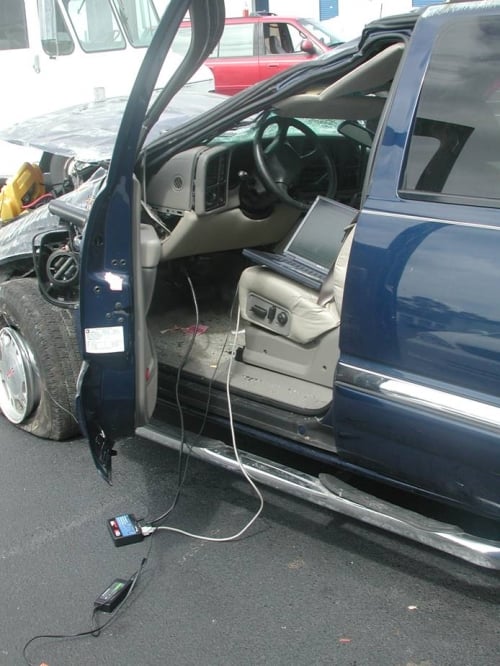
The next time you violate a traffic law, it may not be the cop on the shoulder of the road you have to look out for, but a piece of equipment buried deep in your car known as the “black box.”
The black box is about the size of two decks of cards and is located under the center console. This piece of equipment records a variety of information including brake position, speed, and seat belt usage.
Does your car have a black box? The answer may surprise you. According to an article in The New York Times, 96 percent of all new vehicles sold in this country have one. When you’re shopping for a car the salesperson or dealer probably won’t mention the black box; after all, it isn’t a feature on most shopper’s must-have list.
Jaclyn Trop writes, “Current regulations require that the presence of the black box be disclosed in the owner’s manual.” This means if you don’t read the owner’s manual, you probably won’t know if your car is sporting a black box.
Black boxes aren’t new technology. They’ve been around in cars since the 1990 model year of General Motors. However, the ways in which they can be used have greatly expanded over recent years to include assessment of vehicle performance, identification of safety problems, and documentation of driver activity.
Safety agencies, such as the National Highway Traffic Safety Administration, say that black boxes provide critical information that may help save lives and prevent injuries. However, consumer advocates say this is private information and sufficient rules and guidelines haven’t yet been established that govern the use of this information.
“There are no clear standards that say, this is a permissible use of the data and this is not,” Ms. Khaliah Barnes of the Electronic Privacy Information Center said.
14 states, including New York, have passed legislation that allows law enforcement officials and those involved in civil or criminal litigation to gain access to black box information with a court order. The information obtained may be used against the driver. For example, a driver’s insurance premium may be raised.
“For most of the 100-year history of the car, it used to be ‘he said, she said,’” Mr. Kowalick, an expert in event data recorders and a former co-chairman of the federal committee that set the standard for black boxes, said, “That’s no longer going to be the way.”
What do you think about the use of black box data in criminal and civil cases? Is it a violation of privacy? How might corporations use this information to target drivers (ex. insurance companies)? Brooklyn car accident attorneys at the Law Offices of David J. Hernandez & Associates would like to hear your position on black boxes.
